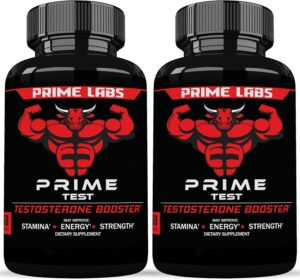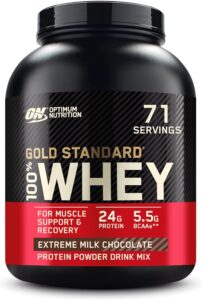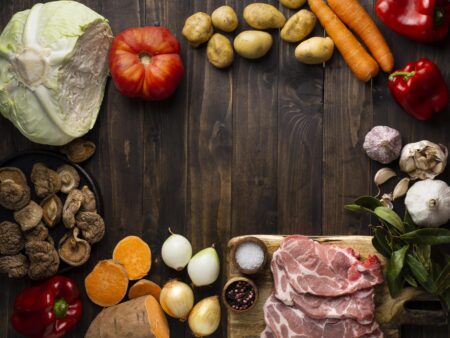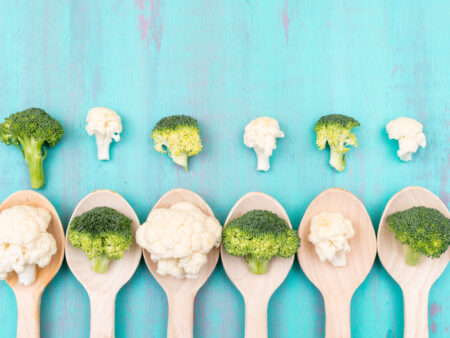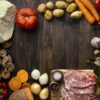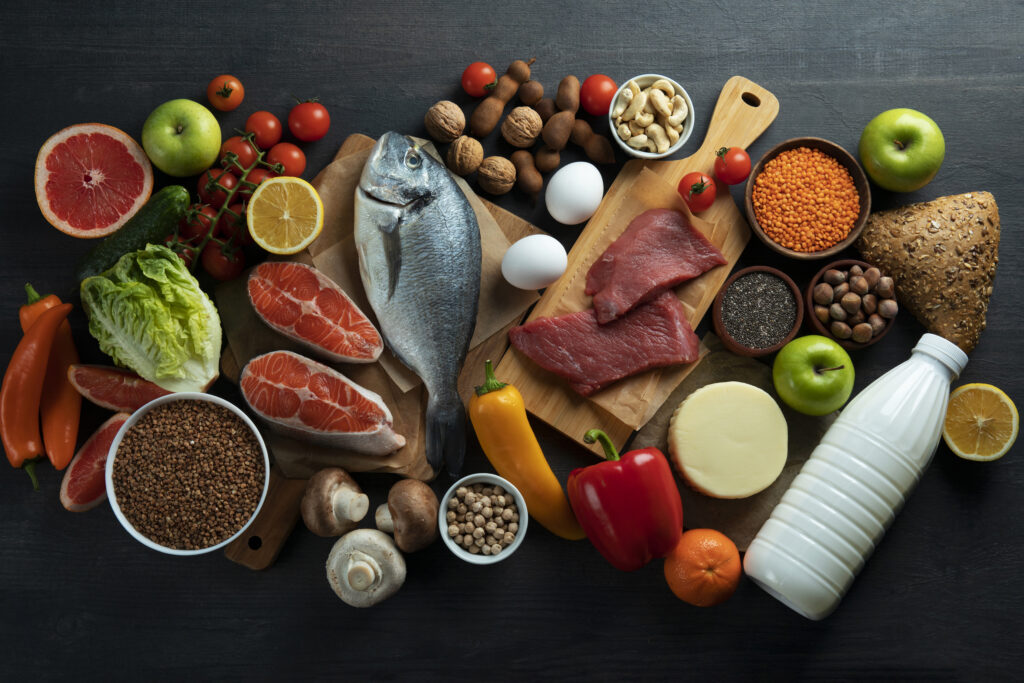
A high-protein diet is a popular nutritional approach for those looking to gain weight and build muscle mass. Protein, a macronutrient essential for numerous bodily functions, plays a crucial role in repairing and building tissues. For individuals aiming to increase their body weight, understanding how to incorporate protein effectively into their diet is key. This article will explore the benefits, food sources, and tips for implementing a high-protein diet to achieve weight gain.
Understanding the Role of Protein
Why Protein is Important
Protein is vital for muscle growth and repair, making it a cornerstone of any diet aimed at weight gain. When you consume protein, your body breaks it down into amino acids, which are then used to repair and build new muscle fibers, especially after exercise. This process, known as muscle protein synthesis, is essential for gaining muscle mass and overall body weight.
Daily Protein Requirements
The amount of protein needed can vary based on individual goals, body weight, and activity levels. For those aiming to gain weight, a common recommendation is to consume between 1.6 to 2.2 grams of protein per kilogram of body weight. For example, a person weighing 70 kilograms should aim for 112 to 154 grams of protein per day.
Benefits of a High-Protein Diet for Weight Gain
Muscle Growth
One of the primary benefits of a high-protein diet is its ability to promote muscle growth. Resistance training combined with adequate protein intake stimulates muscle protein synthesis, leading to increased muscle mass over time.
Improved Recovery
High-protein diets help improve recovery times after intense workouts. Protein aids in repairing damaged muscle tissues, reducing soreness, and allowing individuals to train more frequently and effectively.
Satiety and Nutrient Density
While protein is often associated with satiety and weight loss, it can also help in weight gain by ensuring that the additional calories consumed come from nutrient-dense sources rather than empty calories. This approach promotes healthier weight gain by focusing on muscle rather than fat accumulation.
Metabolic Boost
Protein has a higher thermic effect compared to fats and carbohydrates, meaning the body burns more calories digesting protein. Although this might seem counterintuitive for weight gain, it ensures that the added weight is lean muscle mass, not excess fat.
To start you off, here’s a list of 30 high-protein foods, including vegetables, fruits, and meats:
- Chicken breast
- Turkey breast
- Lean beef (such as sirloin or tenderloin)
- Pork tenderloin
- Salmon
- Tuna
- Cod
- Shrimp
- Eggs
- Greek yogurt
- Cottage cheese
- Milk (especially skim or low-fat)
- Lentils
- Chickpeas
- Black beans
- Edamame
- Tofu
- Tempeh
- Quinoa
- Chia seeds
- Hemp seeds
- Pumpkin seeds
- Almonds
- Peanut butter
- Cottage cheese
- Spinach
- Broccoli
- Brussels sprouts
- Asparagus
- Avocado
High-Protein Food Sources
Animal-Based Proteins
Chicken Breast: Lean and packed with protein, chicken breast is a staple for muscle-building diets.
Fish: Salmon, tuna, and other fish provide not only protein but also healthy fats like omega-3s.
Eggs: Versatile and rich in high-quality protein, eggs are excellent for any meal.
Beef: Lean cuts of beef are great for adding protein without excessive fat.
Dairy Products: Greek yogurt, cottage cheese, and milk offer protein along with calcium and other essential nutrients.
Plant-Based Proteins
Legumes: Lentils, chickpeas, and beans are excellent sources of protein and fiber.
Tofu and Tempeh: Soy products that provide complete proteins, making them great meat alternatives.
Quinoa: A grain that contains all nine essential amino acids, making it a complete protein source.
Nuts and Seeds: Almonds, chia seeds, and hemp seeds offer protein as well as healthy fats and fiber.
Protein-Rich Vegetables: Spinach, broccoli, and Brussels sprouts add to your protein intake while providing vitamins and minerals.
Tips for Implementing a High-Protein Diet
Balanced Meals
Ensure each meal includes a significant source of protein. This might mean planning meals around your protein source, such as chicken breast or tofu, and adding vegetables and whole grains to complement it.
Frequent Eating
To increase overall calorie intake, aim for 5-6 smaller meals throughout the day instead of the traditional three large meals. Each meal should contain a good amount of protein to keep your muscles fueled.
Protein Supplements
Incorporate protein shakes or bars to meet your daily protein requirements, especially if you’re on the go or struggle to consume enough protein through whole foods alone.
Pre- and Post-Workout Nutrition
Consume protein both before and after workouts to maximize muscle protein synthesis. A pre-workout snack could be a small protein shake, while a post-workout meal could include a larger serving of protein and carbohydrates to aid recovery.
Hydration and Sleep
Stay hydrated and ensure you get adequate sleep, as both are essential for muscle recovery and growth. Dehydration and poor sleep can hinder your progress despite a high-protein diet.
A high-protein diet can be an effective strategy for weight gain, particularly when combined with a consistent exercise regimen focused on resistance training. By understanding the importance of protein, selecting nutrient-dense protein sources, and implementing practical tips, individuals can achieve their weight gain goals healthily and sustainably. Whether through animal-based or plant-based proteins, the key is to maintain a balanced, varied diet that supports overall well-being while promoting muscle growth and weight gain.
Moreover, it’s essential to monitor your progress and adjust your diet and exercise routines as needed. Regularly assessing your body composition, strength levels, and overall health can help you make informed decisions about increasing your protein intake or modifying your workouts. Consulting with a nutritionist or a personal trainer can provide personalized guidance tailored to your specific needs and goals, ensuring you remain on the right track.
Incorporating other macronutrients—carbohydrates and fats—appropriately is also crucial for achieving optimal results. Carbohydrates provide the necessary energy for intense workouts, while healthy fats support hormone production and overall cellular function. Striking the right balance among these macronutrients, along with adequate protein intake, will enhance your ability to gain weight effectively and maintain a healthy lifestyle.
Lastly, remember that consistency is key. Sustainable weight gain takes time and dedication. Stay patient and persistent, celebrating small milestones along the way. By maintaining a positive mindset and staying committed to your high-protein diet and exercise regimen, you’ll be well on your way to achieving your weight gain goals and enjoying the benefits of a stronger, healthier body.

